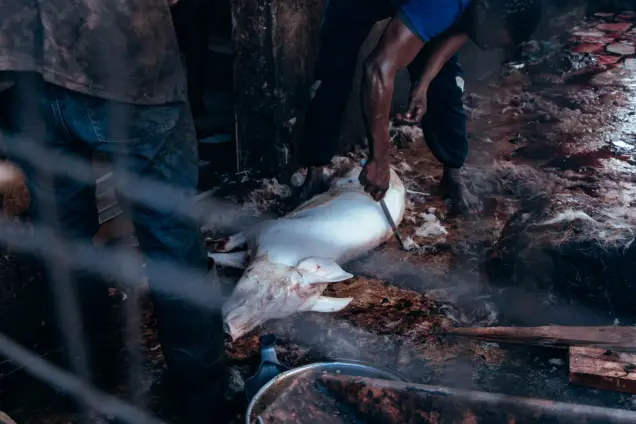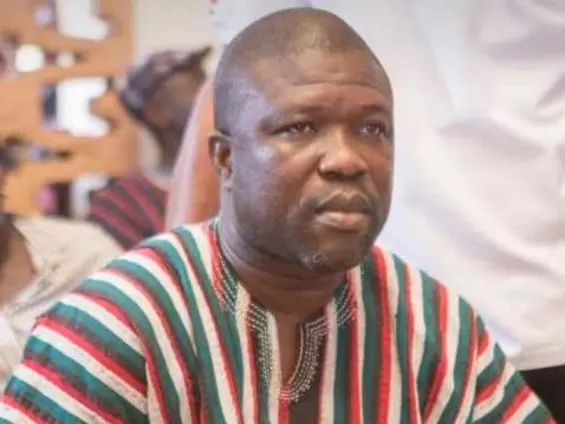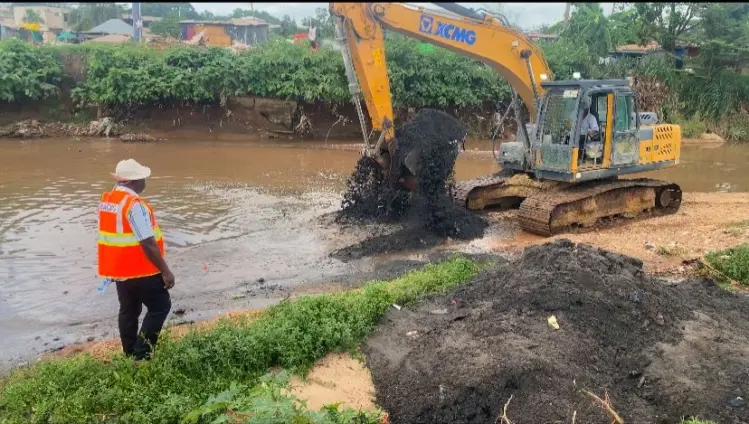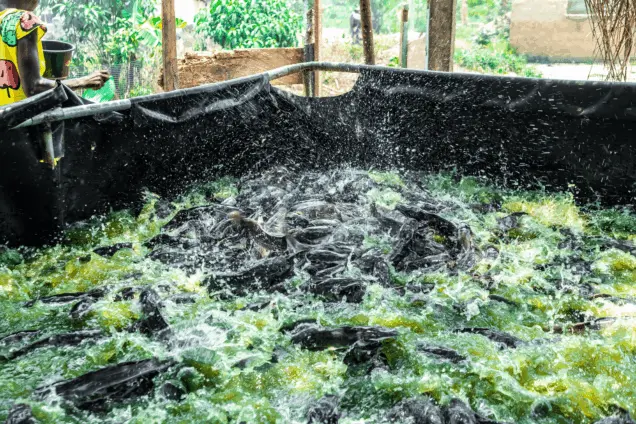In September 2022, a million-euro piggery project in the Weija-Gbawe Municipal Assembly, Ghana, was heralded as a beacon of economic development, funded by the European Union. Now, that promise has soured amid allegations that Akwaaba Feeds Limited, the firm entrusted to manage the facility, has unlawfully seized control, jeopardizing the entire initiative. The accusations point to corporate overreach, mismanagement, and potential breaches of public financial management laws, casting a shadow over the project and raising questions about the future of public-private partnerships in Ghana. The fate of the piggery project hangs in the balance as sources close to the matter describe a breakdown of what was intended as a collaborative effort.
“This isn’t collaboration; it’s seizure,” a source familiar with the project declared. “The entire project has been hijacked.”
The project, launched with fanfare, was intended to uplift lives, create jobs, and invigorate the local economy through a thriving piggery value chain. Akwaaba Feeds was brought on board by the Weija-Gbawe Municipal Assembly to manage the facility. However, sources now claim the company has effectively taken control, allegedly refusing to remit revenue to the assembly. Critical financial and operational levers, including bank accounts and budget oversight, are said to be solely in the hands of Akwaaba Feeds. Receipts issued to customers bear the company’s name, not that of the Weija-Gbawe Municipal Assembly, potentially violating public financial management protocols.
The initial vision for the Gbawe pig abattoir project was ambitious. Funded under the EU’s Local Economic Development (LED) initiative, it aimed to support pig farmers and generate opportunities for more than 350 young people, including individuals with disabilities. The project held the promise of a 130% surge in municipal revenue. Yet, key components such as the breeding centre and feed mill remain inoperative, a stark reminder of the project’s unrealized potential.
“It is quite unfortunate that the purpose has been defeated,” a source said. “The breeding centre didn’t work, the feed mill too didn’t work.”
Despite efforts by Municipal Assembly officials to regain control, they have reportedly been unsuccessful. Meetings with Akwaaba Feeds are said to frequently devolve into heated exchanges. In one initiative, assembly staff stationed at the abattoir managed to collect GH₵40,000 in just three months, revealing the significant revenue potential. However, these efforts to monitor revenue were met with resistance, leading to the withdrawal of the assembly’s staff. Over 35 months of Akwaaba’s management, the assembly has potentially lost GH₵350,000, equivalent to 10% of its internally generated funds in 2023.
Dr. Osei Agyeman Bonsu of Akwaaba Feeds, in response to the allegations, cited a series of shortcomings in the facility’s design and operations. According to Dr. Bonsu, planning errors resulted in equipment malfunctions and operational challenges. He pointed to excessive electricity consumption due to outdated equipment and costly maintenance. He also noted the absence of a cold storage room, compromising meat preservation. Despite receiving an electric stunner, the facility has allegedly not adopted humane slaughter methods.
Akwaaba Feeds denies seizing the project, arguing that they could not remit revenue until the project became profitable. Dr. Bonsu maintains that the abattoir does not pay taxes because monthly earnings are insufficient to cover staff wages.
Further complicating matters, Akwaaba Feeds allegedly erected a structure valued at GH₵20,000, far short of the required GH₵600,000+ capital investment. The assembly’s 2022 annual report placed the abattoir’s construction cost at GH₵722,689.85. The intended partnership appears to have morphed into a monopoly. The facility reports an average monthly revenue of GHS18,000, from slaughtering roughly 1,200 pigs. The service fee remains at GHS15 per pig, despite rising operational costs, while Dr. Bonsu suggests GHS60 would be more appropriate. The project has also failed to generate jobs for youths and the disabled, and many local farmers have reportedly sold their stock.
The European Union delegation to Ghana has declined to comment on the project’s evaluation. The Weija-Gbawe Municipal Assembly has not responded to interview requests. Neither the assembly nor Akwaaba Feeds provided the contract for the abattoir’s management, raising further questions about transparency. Dr. Bonsu suggests that the facility could be revitalized with the right investor to create jobs and transform the piggery value chain.
The million-euro piggery project in Weija-Gbawe now serves as a cautionary narrative of a public-private partnership that has gone awry. Claims of unlawful seizure, financial mismanagement, and broken promises have left the community disappointed, and the project’s original objectives unrealized. With the European Union and the Municipal Assembly not providing insight, the project’s future and the community’s aspirations for a thriving piggery remain uncertain. This situation highlights the critical importance of transparency, accountability, and careful oversight in public projects to guarantee that they achieve their intended outcomes and do not become mired in controversy. A return to the project’s original mission, to benefit local farmers and create jobs, requires prompt and comprehensive investigation and corrective measures.
Image Source: MYJOYONLINE




















